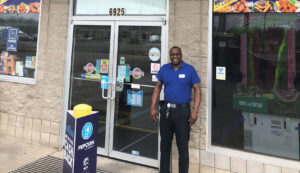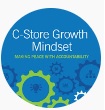
November 22, 2022
Owners and operations leaders look for seven key things great c-store managers deliver to maximize their ROI on their store locations. In order to receive the desired c-store leadership, owners and operations leaders must provide the vision and mission. Store managers are responsible to hire, develop and encourage teamwork by building alignment with the purpose defined in the mission and vision. The entire organization supports the operations and builds a strong culture that provides consistent services to build on-going customer loyalty.
Each store must conform to the chain identity, yet each store will follow the style and approach of its manager. It is the manager’s presence and consistency that provides the daily interactions that form the store’s character. Thus, the store manager’s role is crucial to on-going chain success. The store manager sets the tone for their store, yet the owners and operational leaders must establish the values and consistent experience for the entire chain. Creating consistency and maximizing the independence and capabilities of each unique manager is the art of great c-store operations.
C-Store Leadership

C-store leaders create culture from the top down. Nonetheless, convenience stores take on the personality of their store manager. Great managers understand the vision and culture of their family chain. They build teams that work well together, believe in the family goals for the chains and fulfill their personal goals for their career. There are many styles for successful store management. Great managers are comfortable in their own skin. For example, they can fulfill the family mission and stay true to themselves. Their teams tend to follow suit.
Even with wide variances of style, several traits are found in store managers that run great stores. These include: strong team-engagement, high self-confidence, low drama amongst teammates, high staff retention and strong c-store profitability. Mike Nutt, Garisson store manager, states that “I know my staff can do their job. I treat them with respect as I know they will take care of our customers. We live in a small community and we take pride in how we serve it.” Obviously, he believes team work develops with a strong sense of trust for his staff.
Seven Key Things Great C-Store Managers Deliver
1. Support for Vision & Culture
The best organizations maintain a consistency that is uniquely there own. Like any family, there are so many personalities and differences, but there are also core values, history, and a way of life that makes everyone belong. Strong c-store managers are able to be themselves and build a team that belong to the company way of working. Great c-stores have a feel, the customer experience, that is consistent in their stores. Of course, the staff are diverse, the locations are different, and the communities have their own identity. Nonetheless, the stores share the same approach and deliver consistent services.
2. Transparency
Staff alignment and long-term retention only happens when staff trust their managers and their company. Having a great purpose is the start. Using clear and simple communication allows store managers to move confidently and quickly to build teams and drive results. Using a daily tracking system such as a scorecard provides clear and objective results. Transparency becomes actionable when comparison data highlights those areas that are improving and any areas that are falling back. Additionally, consistent data over time reduces subjectivity. Consistency and honesty build trust and focuses accountability on making things better.
3. Age Compliance
C-Stores sell alcohol, tobacco and lottery. Typically, these sales account for nearly half of their inside sales and largely determine overall store traffic. Avoiding fines, maintaining the ability to sell these items as well as acting as a responsible community member is key to a family chain’s reputation. Unfortunately, enforcement is quite intense and the guidelines can be subjective. Providing guidance and objective assessments of cashier age verification can make a difficult job much easier for store managers.
4. Shrink Control
Shrink is a part of all retailers costs, but without monitoring and control a few bad actors can eliminate profits and in extreme cases actually end a store’s existence. A good team will not steal. However, every team is made of people that have weaknesses. Keeping an eye on shrink with regular identification of risks and daily control of cash and inventory keeps a team on track and playing by the rules.
We sometimes make bad hires even with strong managers and great operational leadership. Utilizing strong shrink control will keep ‘normal’ workers on track and identify those bad actors that must be removed from the team. Providing clear rules, regular tracking, with simple ways to identify risky events, allows a store manager to keep shrink under control.
5. Upselling
Retail operations are sales organizations. Helping clients find value, and the services they need is the job of everyone in the store. When stores provide great value they inevitably provide more value over time. Upselling happens in the store, with vendor specials, with loyalty programs and with great relationships between the staff and customers. Cashiers and store clerks know their customers and understand what they want. Both the client and the stores benefit when clients find the convenience and goods they need.
6. Profit Growth
Profits naturally occur, when a store has strong sales, with solid margins while they control their costs. Having profitable growth provides the funds to pay staff market rates, and keep the store well maintained. It allows for investments in new products, services and building improvements.
Strong operations happen when staff are working well, there is consistent service to customers and the product provide the value that clients desire. Of course, having great teamwork with good compensation not only allows the staff to focus on customers, it also helps to maintain long-term staff retention. Experienced staff do not require as much time for training which allows more time for learning new skills. Such a pattern of success, yields on-going success that leads to even more growth.
7. Return on Investment
The result of having stores well managed inevitably provides a great return on investment. Strong store managers build confidence with operational leaders and encourage even more investment. Success breeds success. Family chains are built on multi-generational success. Many start small and create steady growth that produces huge value to the community, the staff, and owners. Family chains know the value of strong store management. The long-term ROI is just the measurement of the high value c-store mangers deliver every day.
C-Store Profitability
 Owners and operations leaders must have profitability in the long run to keep the family chain thriving. Making investments and driving great traffic and more sales may require temporary expenses that hurt short term profits, but long term c-store profitability is essential to on-going operations. Clearly, achieving the seven key things that great c-store managers deliver will provide long-term success. Of course, it takes time to develop the c-store manager skills, the team work, and the necessary marketing brand. The value to the organization, however, justifies the hard work and patience. Leonna Milburn, Garisson c-store manager, always starts any explanation of her success, by stating how her team is so strong and committed. She credits the leadership of her boss and the owners for her success for making it possible to build a strong team. She explains “Having a good team starts with a great company. The owner and the operations leadership have my back. They treat me with respect and provide a great place to work so that I can hire and manage the team.”
Owners and operations leaders must have profitability in the long run to keep the family chain thriving. Making investments and driving great traffic and more sales may require temporary expenses that hurt short term profits, but long term c-store profitability is essential to on-going operations. Clearly, achieving the seven key things that great c-store managers deliver will provide long-term success. Of course, it takes time to develop the c-store manager skills, the team work, and the necessary marketing brand. The value to the organization, however, justifies the hard work and patience. Leonna Milburn, Garisson c-store manager, always starts any explanation of her success, by stating how her team is so strong and committed. She credits the leadership of her boss and the owners for her success for making it possible to build a strong team. She explains “Having a good team starts with a great company. The owner and the operations leadership have my back. They treat me with respect and provide a great place to work so that I can hire and manage the team.”
Maximize C-Store ROI
C-store leadership is proven by a strong return on investment. Chains know that they must invest in their stores, staff and service. Growth occurs within existing stores and with new ones. Great chains accomplish both at the same time. Stores provide their return by increasing profits and also by increasing the value of the store. Being able to pay for maintenance, develop staff, expand the store means that existing stores continue to increase in value. Strong profits from existing stores offset the investment costs provide the ability cover the risk funding new store expansion. Additionally, staff development allows new stores to be managed by new managers organically developed from within the existing staff. Using existing staff to lead new stores provides a consistent culture and enhances retention of key staff by providing career growth. Focusing on the seven key things great c-store managers deliver, provides both profits for today and increased value for tomorrow.
Low Drama High Performance
No one likes dealing with politics, gossip or unprofessional behavior. It creates problems, reduces the fun, frustrates workers and can lead to turnover and extra costs. We are all human and make mistakes and do not always say or do the right things. With a strong culture that drives towards a good vision, store managers can address normal issues and keep the store on track. Teamwork does not mean that we all have to be the same. It means we share a common purpose and we choose to work together. A store that runs well over time with low turnover, has a great store manager that keeps team work in place and reduces drama inside the store.
Learn more with BandyWorks C-Store Management Resources
Making a Career in Convenience Video

